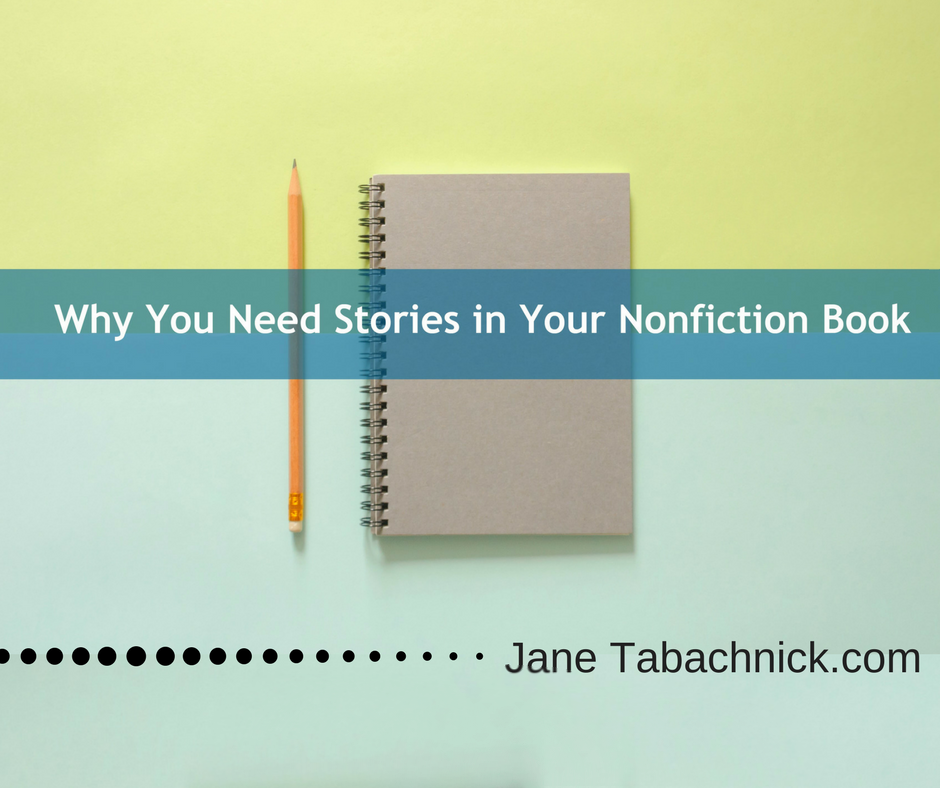 Our brains are wired for stories. They can create an emotional connection and are easier to remember than text or facts.
Our brains are wired for stories. They can create an emotional connection and are easier to remember than text or facts.
Your nonfiction book will be much richer if you include stories in it. You may have a compelling methodology, philosophy or message; the reader will benefit more and remember it longer if you include stories. A rich, textured, multisensory experience with a beginning, middle and an end, is much more enjoyable and memorable than straight theory.
I don’t remember a lot of what I learned in history class, but the stories my teacher shared with us about a historical figure, have stuck with me long beyond any textbook learning. The same will be true for stories you include in your book.
It’s important to carefully select the story or stories you include in your book; choose a story that your ideal reader will identify with, as well as one that showcases your best client work and results.
[clickToTweet tweet=”She Who Tells Stories Rules The World – Why You Need Stories in Your Nonfiction Book” quote=”She Who Tells Stories Rules the World – Native American Proverb”]
Here is how a story can enhance your book:
Demonstrates how the rubber meets the road; your book outlines a message, concept or theory that you are telling the reader about it. Showing is more compelling than telling! Your story shows the reader your concept in a real-life situation, making it easier for them to relate to it.
Allows readers to see themselves in your story; a well-chosen story is relatable to the reader as it helps them walk in the shoes of your client/hero and see themselves working with you.
Provides social proof. Your story shows how you helped a client go from problem to solution easily and quickly, providing proof that serves as a testimonial. It shows that you have done it successfully for the client in your story, and your reader will now know you’re capable of doing it for them.
Demonstrates to the reader you can help them go from where they are, to where they want to be, as evidenced by your well-selected case study. A well-written story will be so real that the reader can taste the result. They will see you as the one who can help them get the same result for themselves.
A well-chosen story is relatable. It confirms for the reader that you understand them and their problem. It shows that you know the solution, and have helped others working with you, overcome their challenges and obstacles.
Remember, as the native American proverb says, ‘She who tells the best stories rules the world.’
This first appeared on She Owns It
Related Content: Choosing the Best Self-Publishing Book Company for Your Needs
